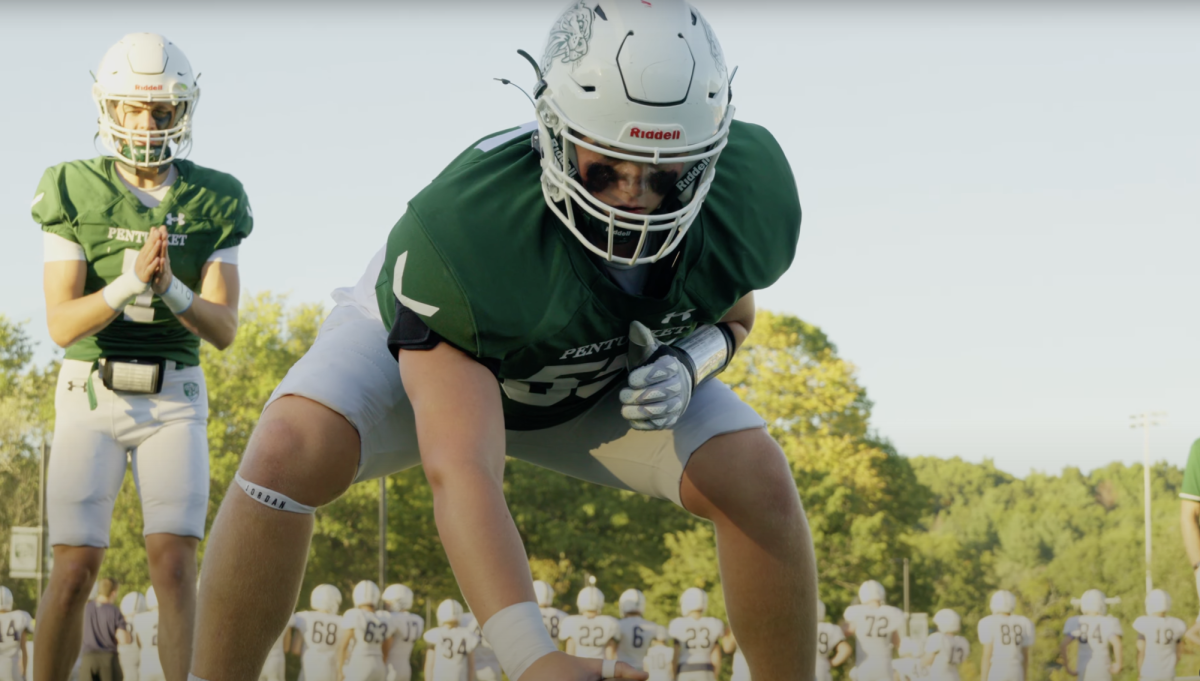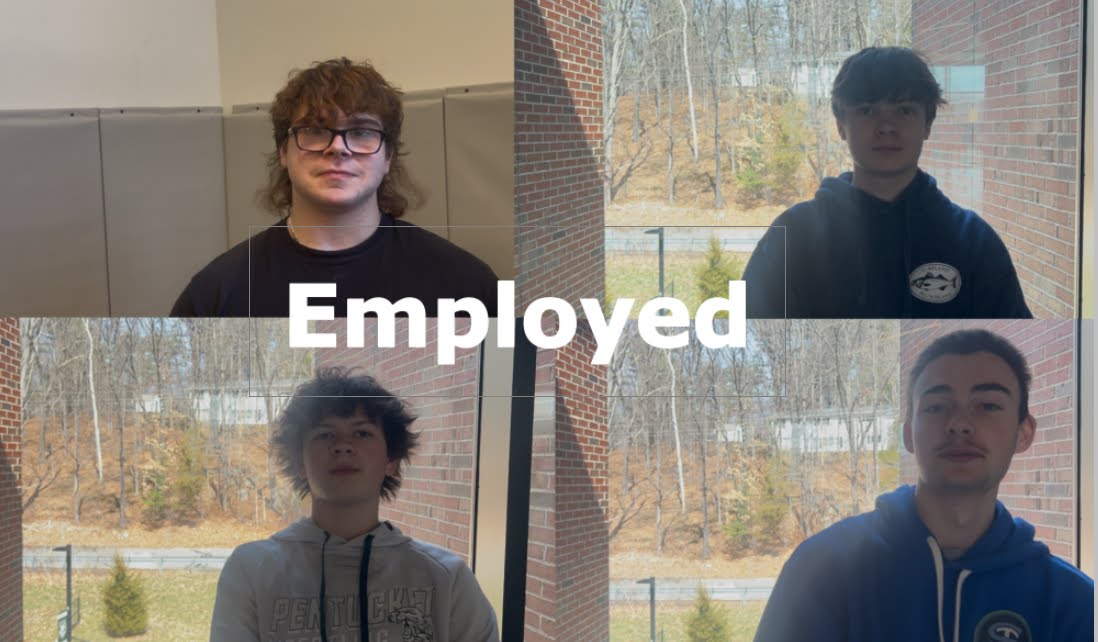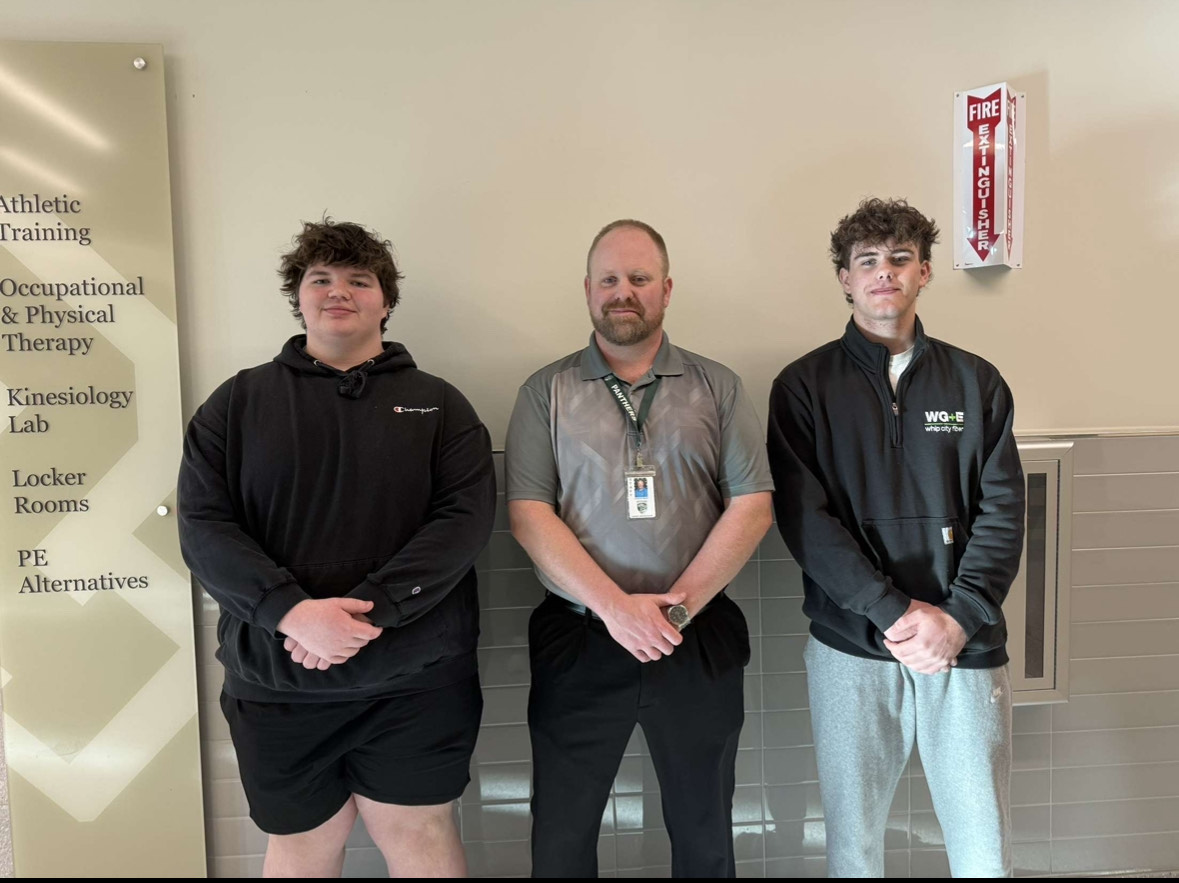Many students often find themselves overwhelmed with boredom during study halls as they had already finished their homework the night before. Therefore, they are likely to distract students who have work from completing it. Having an open campus policy would solve this problem.
Imagine a school day where students are able to grab a coffee or a sandwich from the plaza, or even head home to grab a snack and study during their free period.
Imagine you forgot your sneakers for practice after school, but you are able to drive home to get them.
Imagine having the freedom to eat lunch in your car instead of the busy, loud dining halls.
Establishing an open campus policy at Pentucket could transform this vision into reality, offering students a taste of responsibility and independence. By allowing students to leave school grounds during lunch and study halls, we can foster a sense of trust and maturity between students and faculty. The policy could also provide students with opportunities to manage their time and make choices that best suit their personal and academic needs.
Student Perspectives- The Benefits
Pentucket junior, Logan Lewis, suggested, “An open campus policy would allow more freedom to upperclassmen.” She added, “There are many scenarios where students have study halls, no work to do, feel restricted, and therefore bother other teachers and classrooms, such as Ms. Hamilton and gym classes, causing disruptions in other classes and to other students’ learning.”
Senior Shannon Christopher explained, “It is a really good idea and I think it should be exercised more in schools. It builds trust between students and administrators, and it gives students more freedom to set them up for the real world and lets them build time management skills.”
Similarly, senior Ava Greenbaum voiced, “This would start to give students more freedom that they will experience in college. The freedom college provides can be very new and scary for a lot of people fresh out of high school. I think an open campus policy would allow students to have some of that freedom they will experience while also having some structure. I think it will show students that the administration and teachers have trust in them which might make them more likely to want to come to school. People [students] feel better when they feel respected and this could be seen with seniors and the open campus policy.”
While seniors would value the opportunity and responsibility, many administrators and faculty find difficulties within the policy and the security behind it.
The Problems With Open Campus Policy
One of the problems faculty found in the policy was time management, arriving to class on time, and student attendance. While this problem is realistic and hard to avoid, Christopher felt that “since it’s a privilege and it could get taken away, [students] would have to work on time management.” Many students shared similar opinions with Christopher such as that students would abide by the rules set in place with this policy because it is a privilege, not a right.
Senior Kailyn Cray added, “Many seniors already experience this privilege through senior sign in/out and highly value this privilege, showing up to school and class on time.” Cray went on to explain that while some students may struggle with time management, the senior sign in/out policy should prove and show administration that students can manage their time.
Similarly, Greenbaum shared that, “I think the open campus policy puts a lot of responsibility on seniors, but it is less college-like because now there are consequences for not showing up to school. In college, many professors will not count attendance or say anything if a student doesn’t show up. You are more on your own in college and this policy will add more freedom to high schoolers but still have some control over them.”
In essence, students feel that time management and attendance would not be an issue in installing this policy, but rather it would be beneficial in helping prepare students for college.
Another issue that the administration found within the policy was student safety. Senior class advisor, Mrs. Ward, voiced that, “Having an open campus might compromise student safety.” She added, “The greatest risk that I can think of to students would be that some students might try to get lunch somewhere and because the time is short, they might speed to try to avoid being late. This could cause a dangerous situation.” While this could pose risk to student safety, many students value their freedom whether on or off campus. As a student who has senior sign in, students are very responsible when driving into campus and arriving with plenty of time to sign in and get to class on time.
The last major issue brought up by the administration was security. Pentucket Middle High Principal Mrs. Erhardt was concerned that, “[administrators] do not have the people and security to manage and check students in and out throughout the day.” Again, this problem is realistic. However, this was not seen or brought up as an issue by administrative assistant and front desk, Mrs. Brackbill.
While administration found issues within security, safety, and time management, many students and teachers found alternatives for these issues.
The Solutions
- Senior Sign In/Out- Requiring students to sign in or out before leaving or entering the building.
- Destination Marked- Requiring students to mark where they are going.
- Responsible Students- Limiting the policy to students who can be deemed “responsible,” such as National Honor Society students or sport captains.
Amesbury senior Lindsey Williamson talked about her school’s policies. Williamson said, “Our school does not have an open campus policy, rather, we have a policy for National Honor Society students to have the freedom to leave campus during lunch.” When asked about the benefits of Amesbury’s policy, Williamson expressed, “Having the privilege and ability to leave campus during lunch creates a sense of drive and motivation among younger students in the high school.”
Pentucket Middle High School Principal, Mrs. Erhardt considered this policy but deemed that “it is hard to differentiate responsible students from irresponsible students.” She added, “It would be hard to only give National Honor Society students this privilege as there are many other “responsible” students in the school and [within the] senior class as well.”
In conclusion, the implementation of an open campus policy offers many benefits for students. By granting students the freedom to manage their time and responsibilities, fostering a sense of trust and maturity, and providing opportunities for real world learning, Pentucket can set their students up for success and prepare them for college and beyond.



















